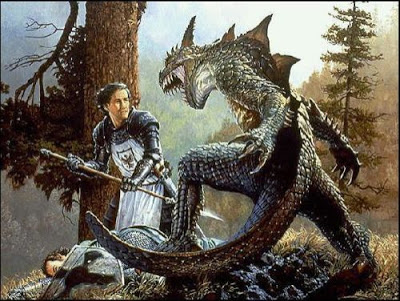Searching for monsters:
Bin Laden is dead, but will
the ‘Long War’ on terror live on?
By Tom Hayden / The Rag Blog / May 3, 2011
John Quincy Adams long ago urged that American foreign policy should be based on the principle that “she goes not abroad in search of monsters to destroy.”
The killing of Osama bin Laden is a triumphant moment for President Obama and the CIA, allowing a symbolic claim to victory in the War on Terror, bringing an understandable feeling of closure for the victims of 9/11, and it will almost certainly assure the President’s re-election in 2012.
But as I wrote in The Nation in October 2009, however, the death of bin Laden is not likely to end the Long War on Terror, now spreading from Iraq to Afghanistan, Pakistan, Yemen, and a dozen other theaters of counterterrorism.
If bin Laden is gone, and his network heavily damaged, what is left of the terrorist threat to our national security that justifies so many trillions of dollars and costs in thousands of lives?
Because of a fabricated fear of bin Laden, we invaded Iraq. The invasion of Afghanistan was to deny sanctuaries to bin Laden and Al Qaeda. In response, Al Qaeda moved into Pakistan, where bin Laden was killed on May 2.
So why are the Taliban in Afghanistan a threat to the security of the United States with bin Laden gone? Surely there are terrorist cells with lethal capacity scattered around the world, surely there might be revenge attacks, but there is hardly a centralized conspiratorial threat that justifies the deployment of hundreds of thousands of American troops.
Now we shall learn whether there is another agenda that keeps 150,000 American troops in Afghanistan and Iraq.
John Quincy Adams long ago urged that American foreign policy should be based on the principle that “she goes not abroad in search of monsters to destroy.”
As history turned out, however, our governments have identified and defined many monsters, from Crazy Horse and Geronimo on to the present. The underlying theory has been that demonic conspirators provoke, lead, and manipulate insurgent movements, and that silencing them will end the threat.
The example of Che Guevara is instructive. Detected, hunted, captured, and killed by Bolivians accompanied by the CIA in October 1967, Che was transformed in death into a global symbol of rebellion. His spirit continues to be alive today all over Latin America, and indeed the world. It can be argued that Che’s impact became greater in martyrdom than during his guerrilla campaigns in Africa and Bolivia.
So it could be with the myth of Osama bin Laden. It may depend on whether the U.S. moves away from the War on Terrorism model to more active support of the youthful social revolution sweeping the Arab world today, which has already surpassed Al Qaeda in its scope and momentum.
[Tom Hayden is a former California state senator and leader of Sixties peace, justice, and environmental movements. He currently teaches at Pitzer College in Los Angeles. His latest book is The Long Sixties.This article was also posted at The Nation and was distributed by Progressive America Rising. Read more of Tom Hayden’s writing on The Rag Blog]
Also see:
- With Afghanistan, a moment of opportunity for Obama by Tom Hayden / Los Angeles Times / May 5, 2011.



















Terror is not a nation or Axis. The phrase “War on Terror” suggests a model that is a dangerous invitation to Americans to forever accept our government spending trillions of dollars and young American’s lives killing people in foreign lands and snooping on us at home. A “War on Drugs” or poverty likewise can not be won but manages to harm life prospects of hundreds of thousands of Americans each year when they are arrested and get “ a record” for marijuana possession or oppresses them when one real objective is being accomplished “regulating the poor.” Can we snuf these phrases as Obama snuffed bin Laden?
Bin Laden’s death won’t shorten our wars in Afghanistan or hostile occupation of Iraq or operations in Pakistan, Yemen, etc. Since WW2 US wars have been fought about every decade because they are very profitable for the military industrial complex. They are fought to wear out or destroy the last war’s stock of military equipment, so it can be replaced, and so that new, experimental and more profitable weapons can be built.
But the strongest reason they are fought is for favorable long term access, for western corporations that lobby the government, to the resources and markets of the attacked countries. That’s why they turn into endless occupations. Average Americans got some material benefit out of WW2. Do average Americans get any benefit today out of corporate access to resources of Iraq and Afghanistan or elsewhere? Well, have you gotten any cheaper gas lately?